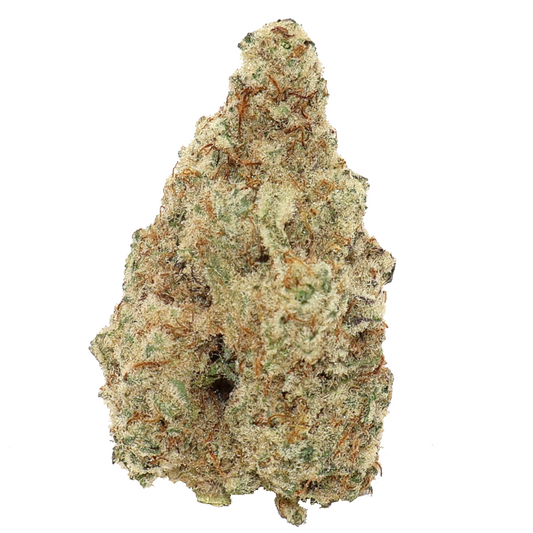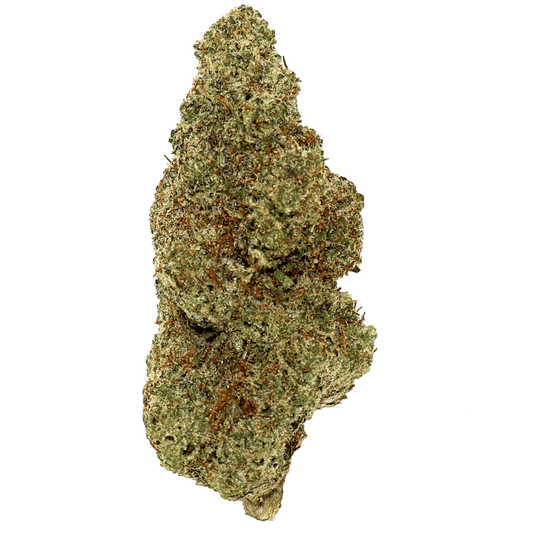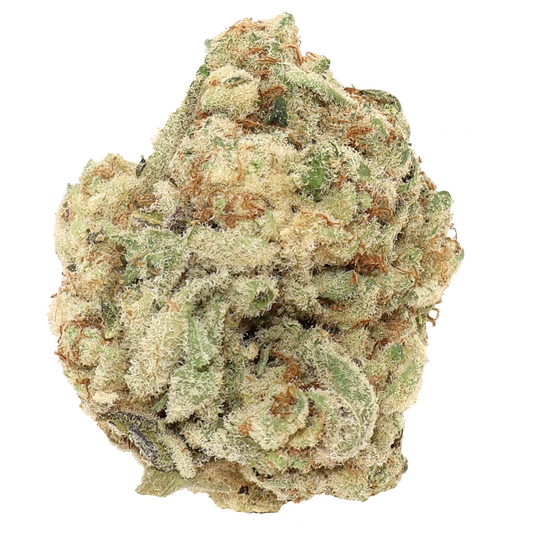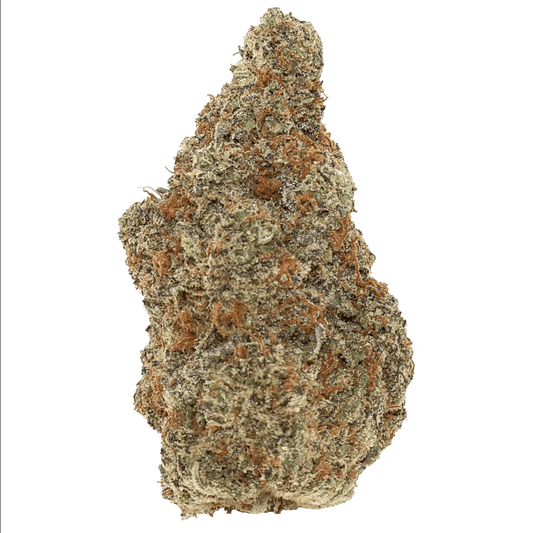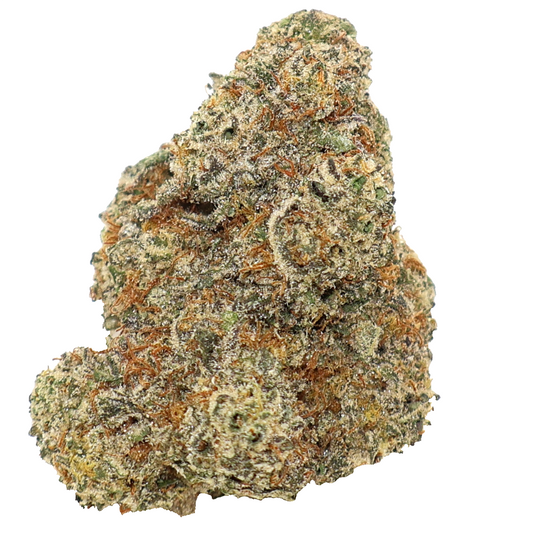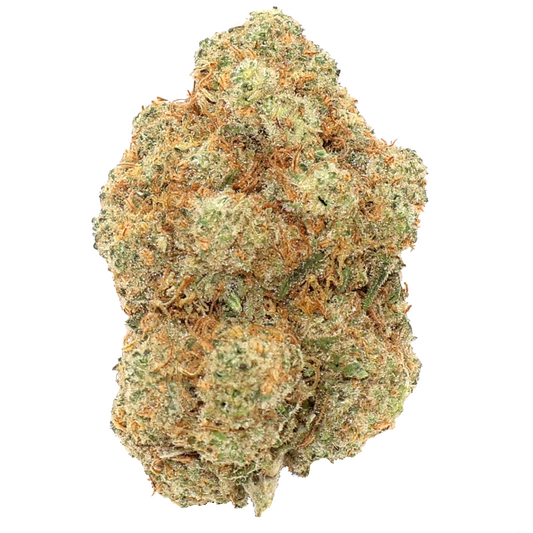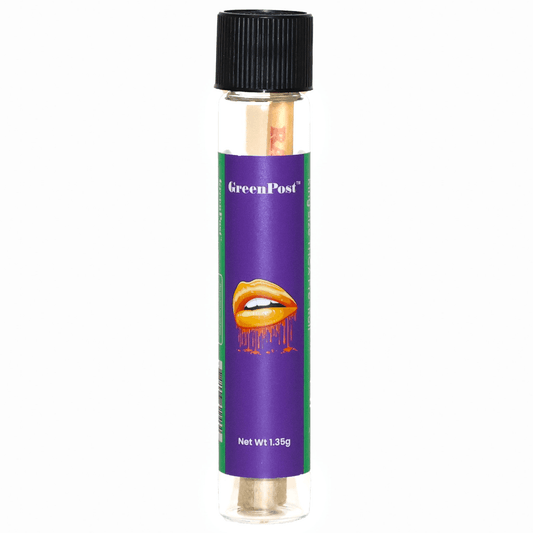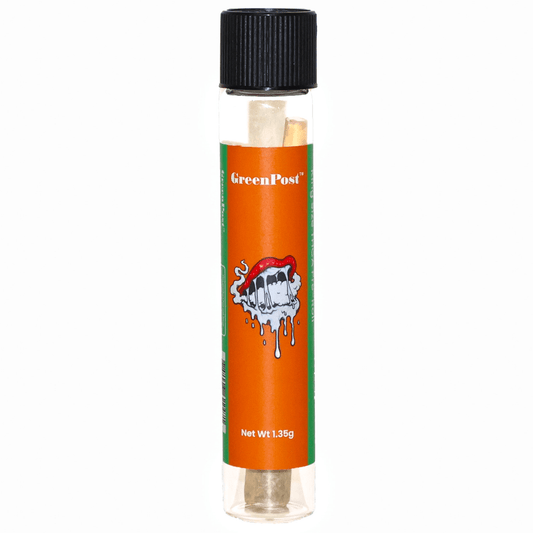Ever walked into a dispensary, browsed the menu, and found yourself perplexed by the numbers next to 'THC' and 'THCA'? Maybe you've asked your budtender about it but their explanation only left you more confused. Or perhaps you're simply curious how one little letter can make such a big difference.
You're not alone in this haze of confusion! With cannabis becoming more mainstream, there's an increasing need to understand its chemistry - specifically thc vs thca. Like two siblings with similar features yet distinct personalities, these compounds may seem alike at first glance but they have unique characteristics that significantly affect your cannabis experience.
Our goal is to clear up any confusion about these cannabinoids. We're going from their chemical structure all the way down to understanding product labels better. This way, you won't find yourself lost in a dispensary aisle ever again.
Table Of Contents:
- Understanding THC and THCA
- The Difference Between THC and THCA
- What is THCA?
- What is THC?
- How THCA and THC are Formed
- THCA vs THC Potency
- Methods of Consuming THCA and THC
- Analyzing THCA and THC Levels
- The Therapeutic Benefits of THCA and THC
- Legal Considerations of THCA and THC
- FAQs in Relation to THC vs THCA
- Conclusion
Understanding THC and THCA
When it comes to cannabis compounds, two names often pop up - THC, known for its psychoactive effects, and THCA, the acidic form of THC. But what do these terms really mean? Let's delve into their chemical structure.
In raw cannabis plants like marijuana, you'll find THCA (tetrahydrocannabinolic acid). Unlike its counterpart, THCA is non-intoxicating but holds potential therapeutic benefits. Its unique properties stem from an extra carboxyl group attached to its molecular makeup.
The psychoactive effects of THC, as opposed to THCA's inert properties, can be activated through decarboxylation when exposed to heat. This mind-altering characteristic can be attributed to high temperatures or direct heat that trigger a process called decarboxylation – effectively converting THCA into active THC.
So whether you're reading product labels or asking more in-depth cannabis questions about potency levels and legal considerations - understanding the difference between these two compounds will certainly help.
The Difference Between THC and THCA
Many cannabis users might presume that the effects they feel stem from THC, but it's not as straightforward.
In raw, freshly-harvested cannabis plants, the primary cannabinoid is actually THCA (Tetrahydrocannabinolic Acid), not THC. The compound THCA is non-intoxicating and has its own potential therapeutic benefits. However, when exposed to heat or sunlight increased room temperatures over time - a process known as decarboxylation - this additional carboxyl group in the chemical structure of THCA gets removed, turning it into psychoactive THC.
This transformation also occurs naturally over time with age and exposure to air. In fact, lab tests often use gas chromatography which applies direct heat during testing – inadvertently converting all available acidic cannabinoids like THCA into their neutral counterparts like THC.
What is THCA?
Tetrahydrocannabinolic acid, or THCA, is a cannabinoid naturally present in the cannabis plant. It's often found in higher concentrations in freshly-harvested cannabis and takes on its raw form due to an additional carboxyl group attached to it.
This extra carboxyl group makes THCA non-psychoactive unlike THC. The transformation from THCA into psychoactive THC (Tetrahydrocannabinol) happens through decarboxylation, a process triggered by heat which effectively removes this additional carboxyl group.
In fact, the sun’s rays start this conversion even before you harvest. So increased room temperatures and sunlight exposure are both factors that can convert more of your bud’s THCA into THC - interesting isn't it? Now let's explore how this affects the properties of these compounds...
What is THC?
Tetrahydrocannabinol (THC) is a psychoactive chemical compound found in various cannabis plants, with concentrations that can lead to different experiences when consumed. It is widely recognized among cannabis users for its psychoactive properties that create an intoxicating sensation.
The content of THC can vary greatly between different strains, leading to differing experiences when consumed. Medical cannabis often contains high levels of THC due to its potential therapeutic benefits.
This compound works differently than other cannabinoids by directly binding with cannabinoid receptors in the brain - hence the mind-altering effects.
How THCA and THC are Formed
If you've ever pondered what gives your preferred cannabis items their psychoactive kick, it's an ideal opportunity to investigate a captivating procedure called decarboxylation. This chemical reaction is what transforms THCA into the mind-altering compound THC.
The journey begins with sunlight exposure and increased room temperatures working on raw cannabis plants where THCA stands tall. But here's the twist - THCA in its natural form doesn't produce intoxicating effects.
The Role of Decarboxylation in THC Formation
This is where heat steps onto center stage. Applying direct heat causes the additional carboxyl group attached to each molecule of THCA to break away—a transformative dance that turns innocent THCA into potent THC.
In essence, this delicate balance between light, warmth, and time makes all the difference when it comes to unlocking those euphoric highs we associate with good-quality marijuana.
THCA vs THC Potency
The difference in potency between THCA and THC can be quite surprising. Unlike its psychoactive counterpart, THCA does not produce intoxicating effects. When exposed to high temperatures or sunlight over a lengthy period, the non-psychoactive THCA can be transformed.
This process of transformation is called decarboxylation, where the extra carboxyl group detaches from the molecule due to increased room temperature or direct heat exposure during smoking cannabis.
When this happens, you get a mind-altering high because of the now active THC content. The degree of conversion (and thus your experience) can depend on several factors including how long and at what temperature decarboxylation occurs.
High THCA strains might not always result in extremely potent highs when consumed as they need proper activation conditions for maximum conversion into their more infamous cousin compound - THC. Research suggests that this delicate balance plays a critical role in experiencing different levels of intensity with cannabis products.
Methods of Consuming THCA and THC
The ways to consume THCA products and cannabis products are varied, each with its unique experience. Smoking cannabis is a common method, but you can also ingest raw cannabis.
Ingesting THCA in its raw form preserves the potential therapeutic effects without producing intoxicating effects as heat has not converted it into THC yet. Some users choose this for the possible therapeutic benefits.
If you're after psychoactive or mind-altering high, smoking is your best bet. Heat from combustion turns THCA into active THC right before inhalation. So select your products wisely based on what effect you seek.
Analyzing THCA and THC Levels
Understanding the levels of THC and THCA, two key compounds in cannabis, is essential for consumers. These levels can be identified on product labels.
The content percentage indicated reflects how much of each compound is present in a given strain or product. To obtain these figures, labs use advanced techniques like gas chromatography and liquid chromatography.
Gas Chromatography (GC), commonly used in the cannabis industry, works by heating samples until they vaporize. However, this method tends to convert all THCA into THC due to high temperatures during testing—potentially skewing results towards higher reported THC content.
In contrast, Liquid Chromatography doesn't require heat and provides a more accurate measurement of both active compounds: it measures true levels of both THC and THCA.
The Therapeutic Benefits of THCA and THC
Both THCA (Tetrahydrocannabinolic Acid) and THC (Tetrahydrocannabinol), compounds found in cannabis, hold a myriad of potential therapeutic benefits. While the body naturally converts THCA into THC, their impacts on our system are remarkably different.
For starters, unlike its counterpart THC which produces intoxicating effects often associated with a mind-altering high, THCA is non-intoxicating. Yet it has been reported to have significant medical applications like anti-inflammatory properties and neuroprotective qualities.
On the other hand, despite being psychoactive or producing that 'high', many cannabis consumers use products rich in THC for pain relief or to help manage conditions such as insomnia and anxiety.
This dual role - both recreational for some while potentially life-changing for others - showcases how versatile these two compounds truly are within the realm of medical cannabis.
Legal Considerations of THCA and THC
When discussing THC and THCA, it's important to consider the legal aspects. Marijuana legality varies from state to state, which impacts the use of these compounds.
Marijuana plants produce both THCA and THC. While neither is federally legal in their raw form, laws differ at a state level. In some places, you might be allowed to grow your own marijuana plant for personal use; however, written consent may be required in others.
The sale or purchase of products containing high concentrations of either compound can also require specific permissions outlined within privacy policies. Therefore, always ask cannabis questions if unsure about local regulations before proceeding with any transactions involving these substances.
Additionally, remember that this information is meant for educational purposes only and should not replace medical advice from a licensed healthcare professional.
FAQs in Relation to THC vs THCA
Is THCA as strong as THC?
It depends. If you smoke THCA, then it can be as strong or stronger than THC. But THCA that hasn't converted to THCA due to decarboxylation isn't psychoactive like THC so it won't give you a 'high'. But it may offer other therapeutic benefits.
What is the difference between THC and THCA?
The main difference lies in their effects. While THC produces mind-altering effects, THCA doesn’t get you high but has potential health perks.
What percent of THCA turns into THC?
About 70% to 85% of raw cannabis's total available amount of cannabinoids can convert from THCA to THC with decarboxylation.
What is the purpose of THCA?
In nature, its role protects fresh cannabis plants. For humans though, research suggests that it might have anti-inflammatory and neuroprotective properties among others.
Conclusion
Decoding the cannabis world is no small feat, but you've just taken a significant step. You now understand the distinct properties of thc vs thca.
The presence of an extra carboxyl group in THCA makes it non-psychoactive while THC gives that mind-altering high. It's all about how these compounds are formed and transformed.
You can appreciate their potency differences and consumption methods better too. From raw to smoked cannabis, you're more informed on what works for your needs.
And let's not forget those product labels! Knowing how to interpret them empowers your choices when selecting products based on THC or THCA content.
All this knowledge also shines light onto their therapeutic potential and legal considerations - truly valuable insights as we navigate through evolving marijuana legality issues together!

